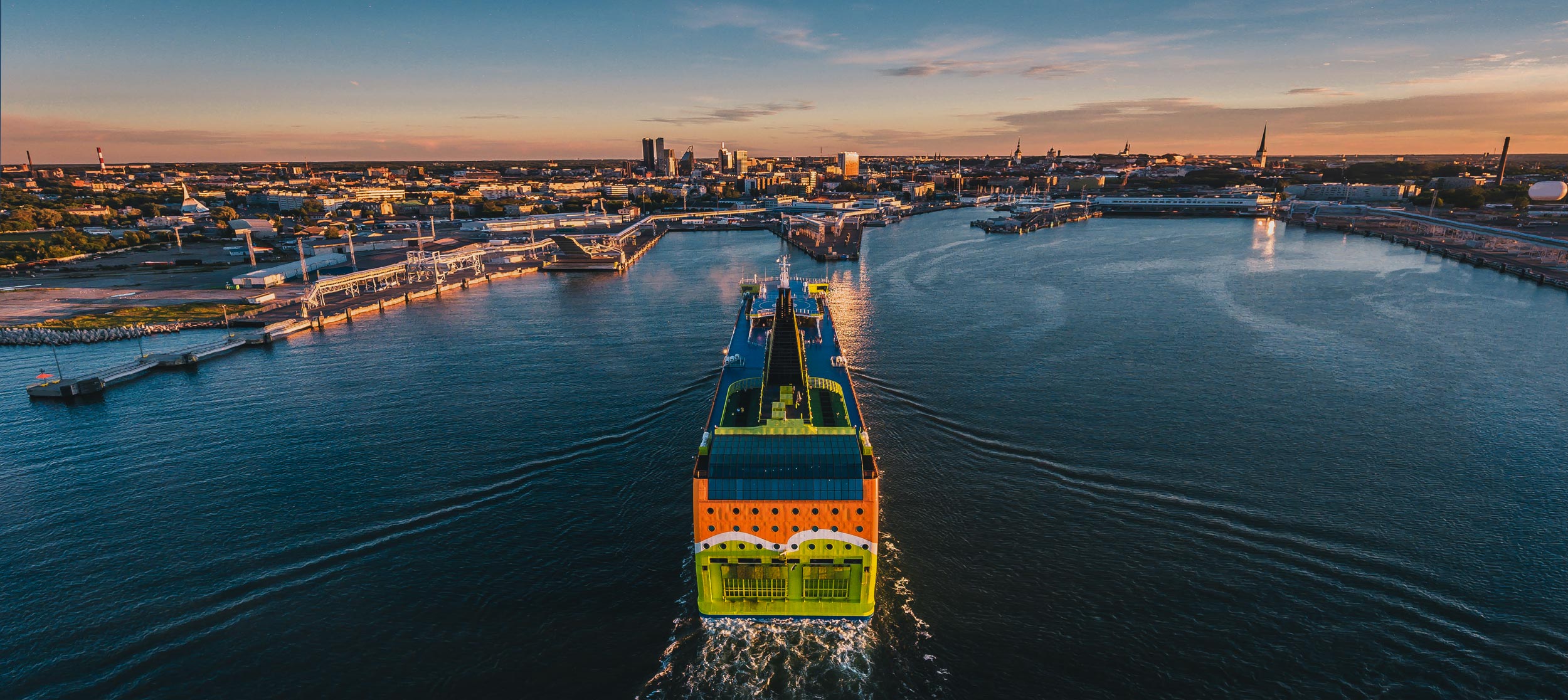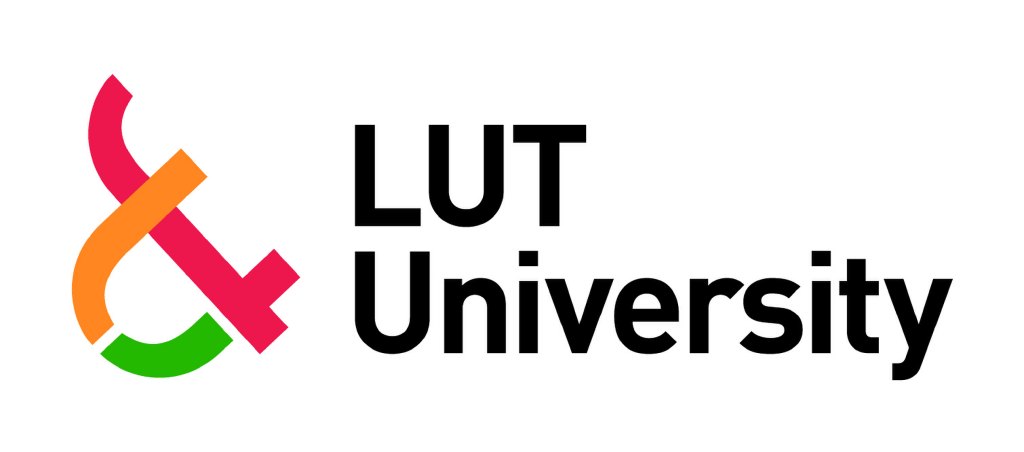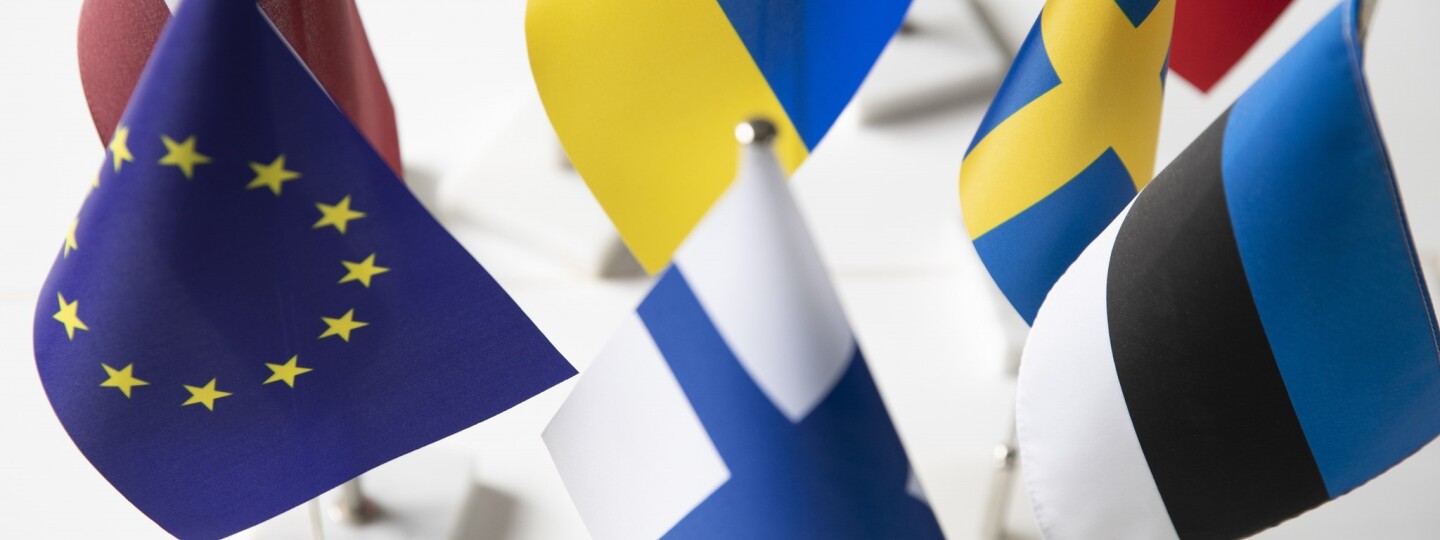The Pan-European Institute (PEI) specialises in international business, investments and socio-economic development in the Baltic Sea region. PEI implements and coordinates research projects related to the economic development of Europe and its neighbouring countries.
Research projects in Pan-European Institute
The latest research projects
The MUUTOS project stems from the ongoing transformation shaping the global economy and the challenges this change creates for the Finnish export industries. The project aims to study the ways companies are changing their functions to adapt to the rapidly changing business landscape. According to SITRA's (2020) megatrends analysis, there are currently five interconnected business developments: (1) ecological reconstruction; (2) increased importance of relational power; (3) the population is ageing and becoming increasingly diverse; (4) the reorientation of the global economic system; and (5) technology is becoming embedded in everything. The COVID-19 pandemic is also expected to create new trends which will have long-term effects in many areas of our lives.
These developments have also affected the Finnish export industries as they have started looking for ways to continuously improve their competitiveness. This research project aims to study the impact of megatrends on the Finnish maritime industry by exploring how companies in this sector are conducting their international business affairs. Since understanding the effects of megatrends requires analysing the phenomena from the perspective of different actors, we will examine changes in international business from two angles: (1) institutions and organisations (system level) and (2) respective Finnish maritime enterprises (firm level). Based on these analyses, we seek to answer the following research questions:
1. How does the Finnish maritime industry see the current megatrends?
2. How are megatrends interpreted and how are they addressed at the system and firm levels?
3. How are the responses of different level actors interlinked in practice?
4. How does the future and competitiveness of the Finnish maritime industry look in 2025 and beyond?
5. What are the threats and opportunities associated with these future scenarios and what kind of preventative measures would be beneficial to support favourable future paths?
The project has been funded by the Finnish Foundation for Economic Education
10/2022 – 02/2025
Researchers:
The objective of the project is to investigate how social media could be utilized in assessing the stability of Finland’s neighbouring areas and foreseeing the developments in Finland’s security environment. The project analyses Russia’s socioeconomic development after it launched its full-scale invasion of Ukraine in February 2022 and explores the significance of social media as a platform for social action and activism. The project 1) analyses the current situation of opposition-minded and anti-war civil society in Russia, 2) examines the significance of social media as a platform for activism, and 3) assesses the potential for large-scale protest movement in Russia.
The main empirical research material of the project comprises the posts and discussions in Russian-language anti-war Telegram channels and public groups, which is analysed with qualitative content analysis. The Privacy Notice for Research Data can be found here.
The two-year (2023-2024) project is funded by the Scientific Advisory Board for Defence (MATINE).
Researchers:
The TULEVA project is part of a larger research project that aims to analyse the pressures for change caused by megatrends and sudden disruptions to Finnish companies' international business operations.Central questions include:
How have megatrends and disruptions been interpreted and how have they been responded to at the system and firm levels?
How do the responses from different actors link to each other and how are they linked to trade policies?
What will Finland's international trade, exports and competitiveness look like in 2030 and beyond?
What kind of anticipatory measures are needed to ensure an active role for business?
The TULEVA project focuses on the interface between policy-making and business, assessing synergies and conflicts between the demands for sustainable development and security. The project is carried out in cooperation with the Confederation of Finnish Industries.
The project has been funded by Suomen ulkomaankaupan edistämisrahasto (SUE).
10/2022 - 05/2024
Researchers:
Background of the project
- Global trade has witnessed a multitude of changes at an increasing pace – more than ever before.
- Digitalization and platform economy have changed value creation mechanisms and value chains, enabling the emergence of new business models.
- The developing markets have strengthened their positions as part of the global economy at the same time as the role of developed economies has been decreasing, thus fluctuating the traditional trade positions in global markets.
- Open market economy and free trade have been challenged in multiple locations all around the world.
Future business managers will need the ability to understand wide-ranging changes in their business environment. This will heighten the importance of managers’ capabilities to estimate the consequences of these changes in their businesses, as well as to identify and create business opportunities. Both business students as well as business practitioners need to understand the meaning of changing trade policy. Thus, we offer them the means and networks to be able to react to and prepare for the developments induced by changes in global or regional trade relations.
Key objectives:
- Establishing a new Master’s level course
- Organizing a seminar for companies
- Producing a trade policy focused article collection
- Establishing trade policy focused research projects and initiatives
KAPPAS project is a three year initiative (November 2019 – October 2022) funded by The Union of Industries and Employers Foundation (Teollisuuden ja Työnantajain Keskusliiton -säätiö, TT).
Contact
Research Manager
Anna Karhu
Expanding efforts to bring eco-efficiency to maritime industry processes in Baltic Sea Region via digital tools
Pan-European Institute at the University of Turku is the Lead Partner in EXOPRODIGI project. EXOPRODIGI is funded by the European Union from the Interreg Baltic Sea Region programme. The duration of the project is 9 months, from January to September 2021.
EXOPRODIGI builds on the work done in the ECOPRODIGI project, which ended in December 2020. The project expands the efforts done in ECOPRODIGI bringing eco-efficiency to maritime industry processes in Baltic Sea Region via digital tools.
13 partners from four countries around the Baltic Sea Region (Lithuania, Denmark, Finland, Sweden) are involved in the project, including research institutes, enterprises, business support organisations and expert organisations.
Please find the full description of the project on the official website.
Contact
Elisa Aro, Research Manager
Marjaana Reunasalo, Financial Manager
Julia Ajanko, Project Research

 11
11

The Pan-European Institute is coordinating a €4M international maritime industry digitalisation project.
ECOPRODIGI project funded by the European Union from the Interreg Baltic Sea Region programme involves shipyards, shipping companies and other key actors around the Baltic Sea region. The duration of the project is 2017-2020.
The aim of the ambitious research and development project of the maritime industry is to increase eco-efficiency of the maritime industry in the Baltic Sea region with digitalisation. Over 20 research institutes, companies and stakeholder groups from around the Baltic Sea region are involved.
Please find the full description of the project on the official website.
Contact
Project Manager
Milla Harju
Project Researcher
Elisa Aro

Clean Shipping Project Platform, CSHIPP, brings together projects and organisations focused on enhancing clean shipping in the Baltic Sea region. The objective of CSHIPP is to increase the impact of and connect the dots between the several projects working for clean shipping. As the projects involved in the platform look at the shared topic of clean shipping from different angles, CSHIPP synthesises the projects’ results to provide a more holistic perspective in a concise and easily comprehensible format.
The activities of CSHIPP revolve around two key themes: the environmental effects of shipping in the BSR and the business potential of clean shipping in the BSR. By discussing these themes both separately and simultaneously, CSHIPP emphasises that environmentally friendly shipping and profitable business support rather than exclude one another.
Projects involved in CSHIPP
EnviSuM
SHEBA
EGOPRODIGI
GoLNG
BalticLines
BSR Electric
Smartup Accelerator
The duration of the project is 2018-2020. Read more about CSHIPP on the official website.
Contact
Project Manager
Riitta Pöntynen
Project Researcher
Teemu Itälinna
DigiPro – Internationally scalable business from digitalization – project examined anticipatory project controlling solutions and how they can be exploited in creating profitable business operations.
The partners of the project were Turku School of Economics in University of Turku and School of Business and Management in Lappeenranta University of Technology as well as four Finnish SMEs. The main financier of the project was Business Finland and the duration of the project was 2017-2018.
Read more about the project on DigiPro blog (in Finnish).
DigiPro final report (in English).
Contact
Project Researcher
Elisa Aro

MNEmerge project explored the role of multinational enterprises (MNEs) in addressing global development challenges by mirroring the impacts of the operations of MNEs against the United Nations Millennium Development Goals (MDGs). The project included field research in three developing countries, Brazil, Ghana and India.
The four objectives of the project were the following:
- Developing a comprehensive framework to analyse the impacts of MNEs towards socio-economic development;
- Developing a model that describes the relationships between MNEs, FDI and the economy;
- Performing case studies and quantitative analysis to verify the developed model;
- Analysing the role of public policies in supporting responsible business practices and the Millennium Development Goals.
MNEmerge also provided recommendations regarding modes of MNE collaboration with societal stakeholders. Thus, the project aimed at supporting business sustainability while simultaneously ensuring sustainable development of a society.
MNEmerge was a three-year (2014–2016) international research project.
The partners of the project were:
- Lappeenranta University of Technology, Finland (Lead Partner)
- King’s College London, UK
- Brunel University, UK
- University of Oxford, UK
- University of Turku/Pan-European Institute, Finland
- United Nations University, Netherlands
- Public Health Foundation of India, India
- Science and Technology Policy Research Institute, Ghana
- INESC P&D Brazil, Brazil
Please find the full description of the project on the official website.
Contact
Project Researcher
Hanna Mäkinen
Russia's final energy frontier – Sustainability challenges of the Russian Far North.
The two-year (2014–2016) research project, co-funded by the Academy of Finland and the Japan Society for the Promotion of Science, analysed the role of internal factors, foreign businesses and international Arctic politics in the formation of energy policy in the Russian Far North, towards which the centre of gravity of Russia’s hydrocarbon production is shifting. The project also examined how this policy affects socioeconomic development and the environmental situation in the area.
Sub-themes of the project were the following:
- What are the budgetary relations between the federal centre and the Russian Far Northern areas? How is energy wealth divided between the centre and the Northern regions?
- How do energy developments affect demographic trends in the Russian Far North?
- How does the hydrocarbon sector carry out its social and environmental responsibility in the Russian Far North? How do the rights of indigenous people play out in these policy practices?
- What is the future role of foreign companies in the development of the Russian Far North? How do they enter the markets and engage in the complex networks in the Russian Far North? How do they cooperate with other actors?
- What is the role of international politics in the Arctic, including Arctic environ-mental policy, in the formation of Russia’s energy policy in the Far North? How do politicization and securitization relate to energy policy formation?
- How does energy policy affect the future use of the Northern Sea Route?
SmartComp project aimed to unite the maritime clusters of the region and to strengthen existing networks as well as to create new ones in order to improve competitiveness of the sector and to create sustainable growth possibilities for the sector through triple helix cooperation.
Results of the project
Research report 1: Maritime cluster analysis on the Central Baltic Region
Research report 2: Maritime companies and their business networks in the Central Baltic region
Research report 3: Maritime sector developments in the global markets
Final report of the project: Conclusions on increasing smart competitiveness in the Central Baltic region
The duration of the project was 2012-2013. Please find the full description of the project on the official website.
Contact
Project Researcher
Eini Haaja
Project Researcher
Hanna Mäkinen
Wider Europe – Regional Security Report
During 2010-2011, the Pan-European Institute published a biannual review Wider Europe – Regional Security Report, which focused on the security development of the Western CIS (Moldova, Ukraine, Belarus), the South Caucasus (Armenia, Azerbaijan, Georgia) and Central Asia (Kazakhstan, Kyrgyzstan, Tadzhikistan, Turkmenistan, Uzbekistan).
The report was a part of the research project Security and Development Research within the Wider Europe Initiative Security Cluster; Pan European Institute (2010–2011), which was funded by the Finnish Ministry for Foreign Affairs within the development cooperation.
Reports
Regional Security Report 2/2011 – Special edition on energy security was published on June 22, 2011.
Regional Security Report 1/2011 - Special edition on socio-economic development
Отчет о региональной безопасности (Regional Security report 2/2011 (RUS))
